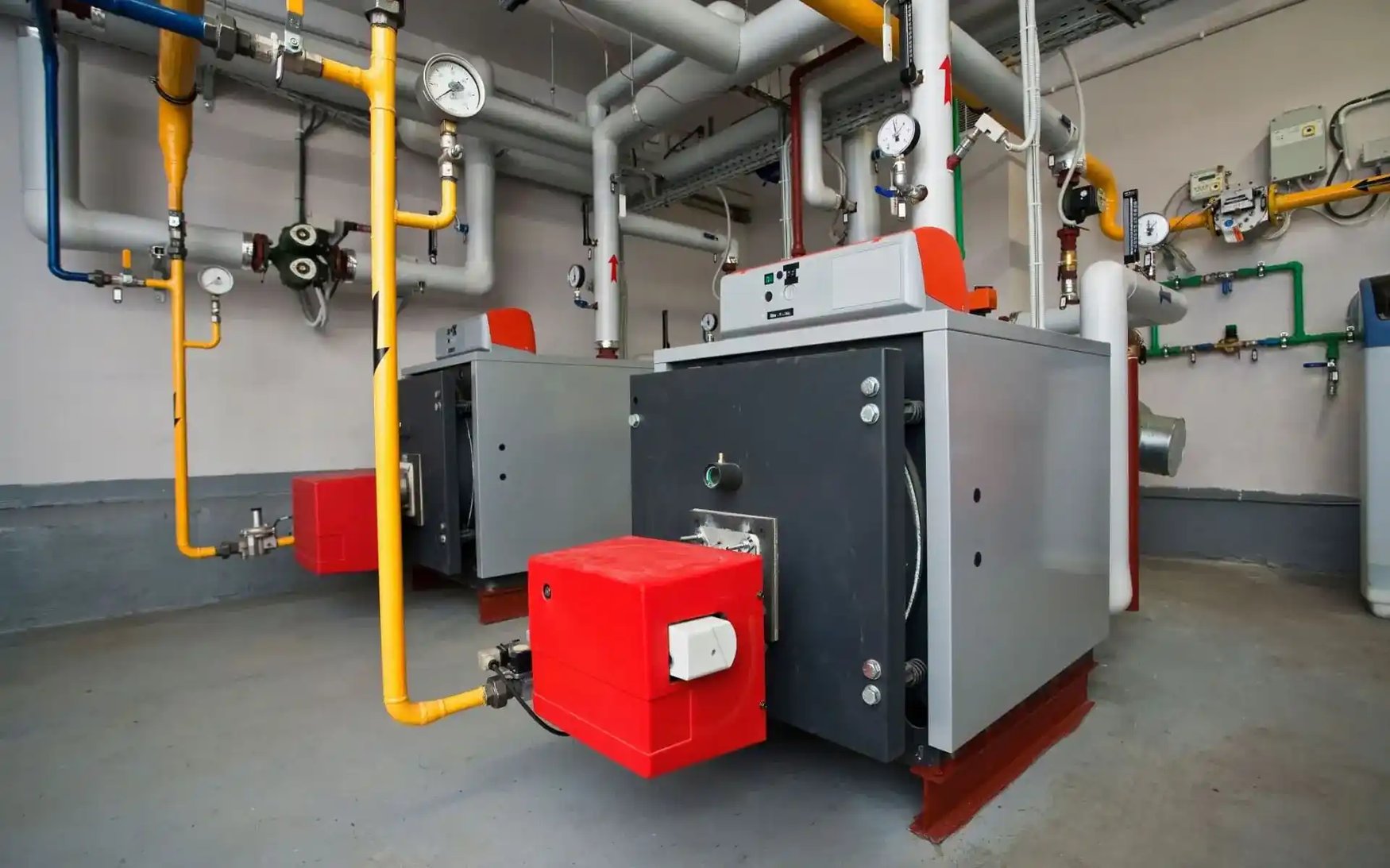Maximizing Output: Tips for Commercial Boiler Efficiency

In the bustling hub of business operations, a commercial boiler stands as the silent, fiery giant powering through day and night. Think of it like your trusty car; you gotta give it some TLC and clever hacks to keep it firing on all cylinders without a hitch. Here's your guide to squeezing every bit of efficiency out of your commercial boiler without breaking a sweat or the bank.
Know The Boiler
Understanding your boiler is the first step towards efficiency. Just like books becoming movies, commercial boilers, too, have their unique characteristics and quirks. They aren't all the same size or shape - they vary as much as stories do! Each has its temperament and preferences. Some like it hot and fast; others prefer a slow and steady warmth. Recognize what you're working with:
- Annual Inspections: Like visiting the doctor, annual check-ups prevent minor issues from ballooning into expensive disasters.
- Understand Its Type: Whether it's steam, hot water, condensing, or non-condensing, each has its efficiency playbook.
- Efficiency Ratings: Get familiar with your boiler's efficiency rating. This gives you a solid reference point to gauge any enhancements made.
- Maintenance History: Keep a detailed record of maintenance and repairs. This practice can give you a heads-up about what might be needed down the line and help pinpoint problems that keep popping up.
A Clean Boiler is a Happy Boiler
Dirt is the enemy of efficiency. A clean boiler is like a well-oiled machine, humming along smoothly and efficiently.
- Regular Cleaning: Keep the fireside clean. A buildup of soot can act like a blanket, absorbing heat meant for your water or steam.
- Watch the Water: The waterside needs love too. Scale and sludge act like thermal insulators, fighting against heat transfer.
- Deaeration: Remove oxygen from feedwater to prevent corrosion and increase efficiency.
- Blowdown Control: Regularly remove contaminants from the boiler to maintain water quality and efficiency.
Tune-Ups Aren't Just for Cars
Tuning your boiler is akin to fine-tuning a performance car. It's all about making sure everything's ticking along just right.
- Burner Adjustments: Ensure your burner's air-to-fuel ratio is on point. Too much air cools the flame. Too little, and you're leaving money on the table with unburnt fuel.
- Regular Testing: Use flue gas analysis to adjust the burner for optimal operation.
- Update Control Systems: Modernize outdated control systems for better precision and efficiency.
- Thermostat Calibration: Regularly calibrate thermostats and pressure controls to avoid inefficiency.
Insulation: Don't Let Heat Escape
If heat is money, then insulation is your bank vault. Keeping the heat where it belongs saves more than just pennies.
- Piping and Equipment: Insulate pipes and valves to prevent heat loss in transit.
- Boiler Insulation: Check the boiler's insulation regularly. Even small gaps can be like leaving a window open in winter.
- Door Seals: Ensure boiler door seals are intact to prevent heat from escaping.
- Refraction Maintenance: Maintain and inspect refractory to prevent heat loss and protect the structure.
The Art of Water Treatment
Water quality can make or break boiler efficiency. Hard water? It's pretty much a boiler's arch-nemesis, you know. Why? Well, it causes nasty scale buildup, which totally tanks the efficiency of your boiler.
- Softeners and Treatment: Use water softeners and chemical treatments to keep the water quality in check.
- Regular Testing: Test water regularly to detect any changes in quality before they become problems.
- Pre-treatment Systems: Implement pre-treatment systems for feedwater to reduce the risk of scale and corrosion.
- pH Control: Maintain the water at the correct pH level to prevent corrosion and scale formation.
Get On Board with Tech!
It's a no-brainer. In an age where our phones are pretty much geniuses, why not let the same be true for your boiler system? Trust us, you'll find tons of ways to boost efficiency.
- O2 Trim Systems: These systems adjust the air-to-fuel ratio in real-time for optimal combustion efficiency.
- Condensing Economizers: Capture heat from flue gases that would otherwise vanish into thin air and use it to preheat incoming water.
- Automated Monitoring: Use sensors and automation for real-time efficiency monitoring and adjustment.
- Variable Speed Drives: Install variable speed drives on pumps to adjust flow rates according to demand, reducing energy consumption.
Boosting boiler efficiency isn't just about saving some cash. It's more about confirming smooth operations and taking responsibility for our planet. Putting these tactics into play, companies can hit that sweet spot where business needs and green goals shake hands. In the business world of today, we need to be on our toes and aim for consistent growth - boiler efficiency isn't any different; it's crucial that we stay focused and committed to ensuring progress is always on the horizon because, let's face it, that's how you win in this field.

Ravindra Ambegaonkar
Ravindra, the Marketing Manager at NY Engineers, holds an MBA from Staffordshire University and has helped us grow as a leading MEP engineering firm in the USA
Join 15,000+ Fellow Architects and Contractors
Get expert engineering tips straight to your inbox. Subscribe to the NY Engineers Blog below.


